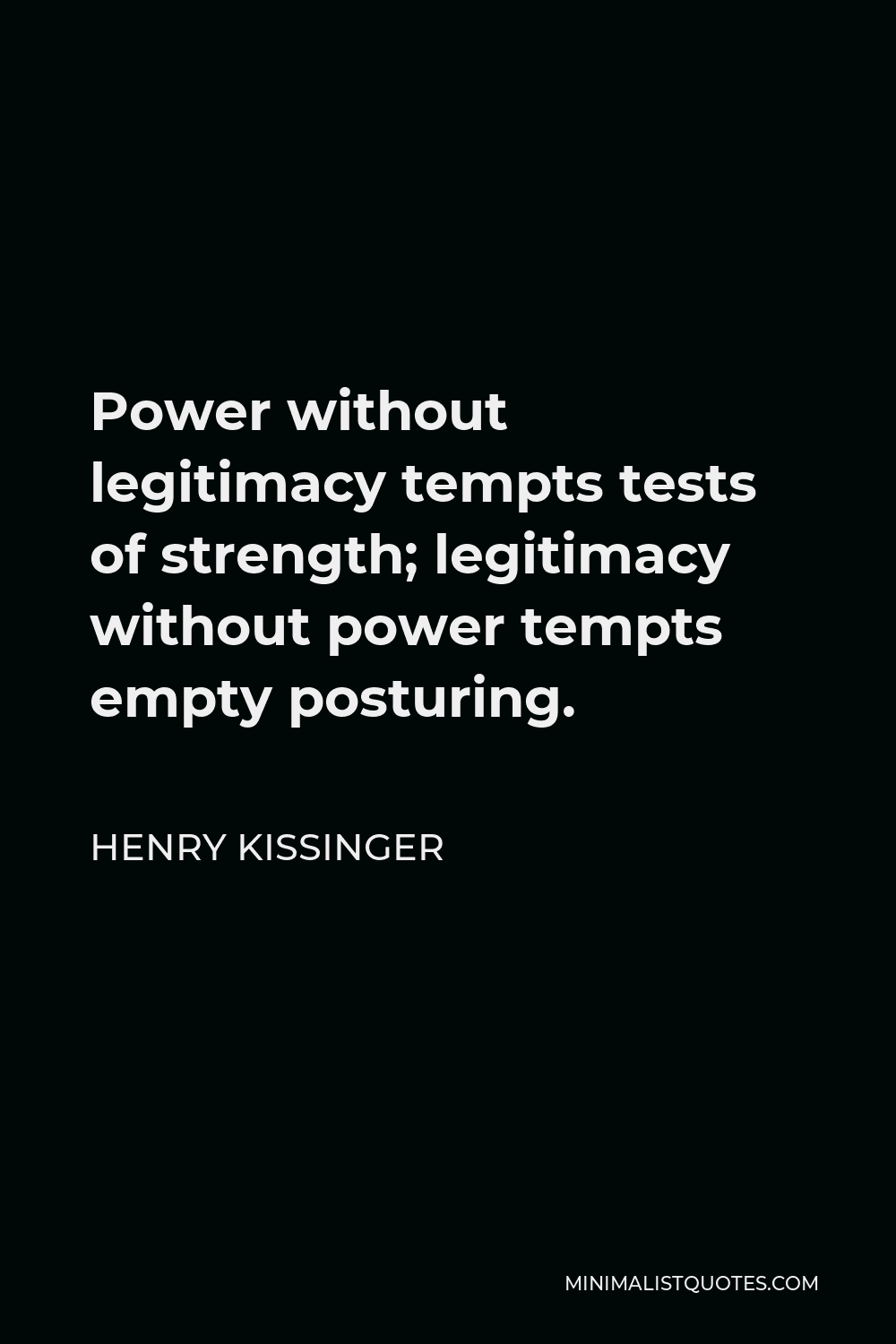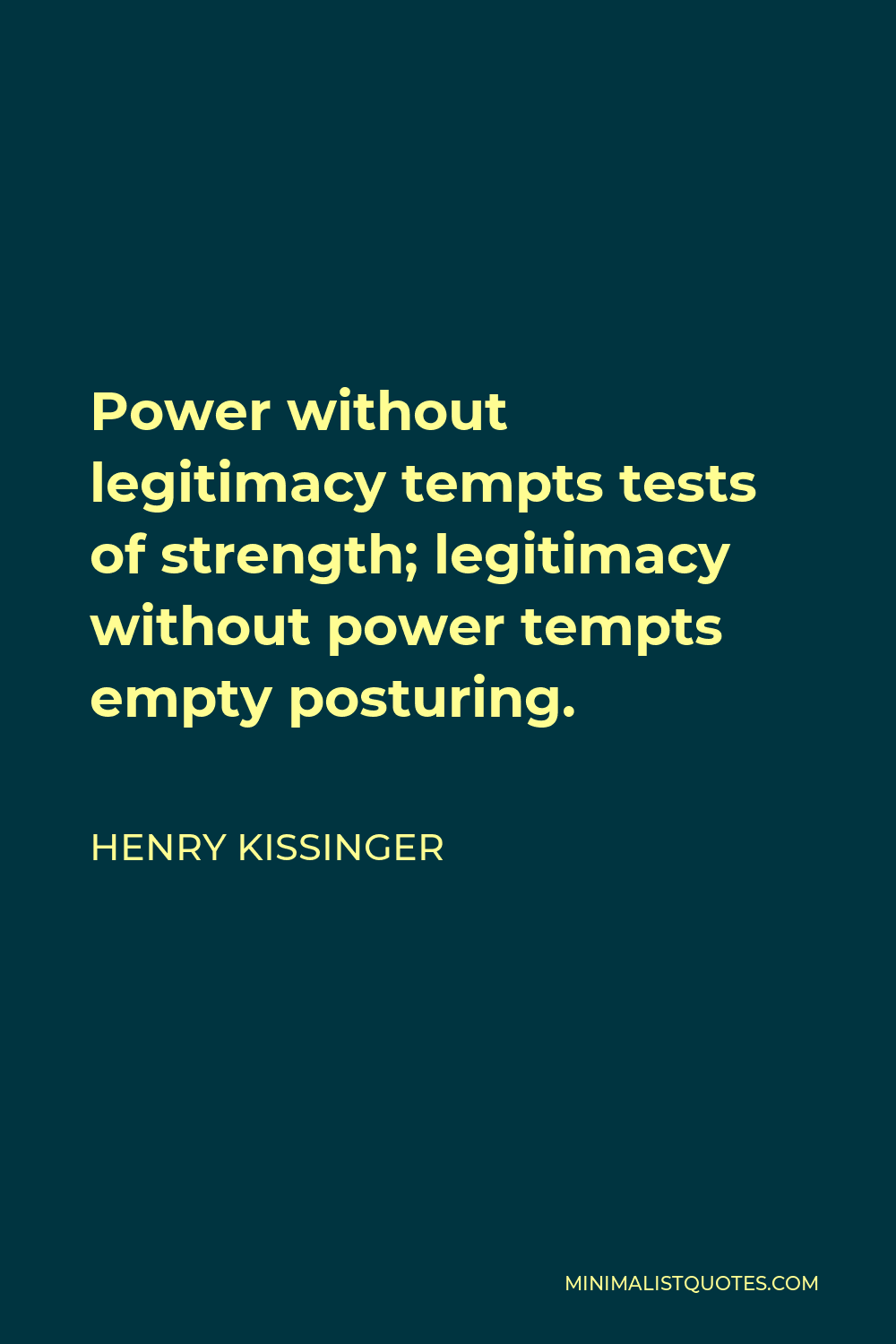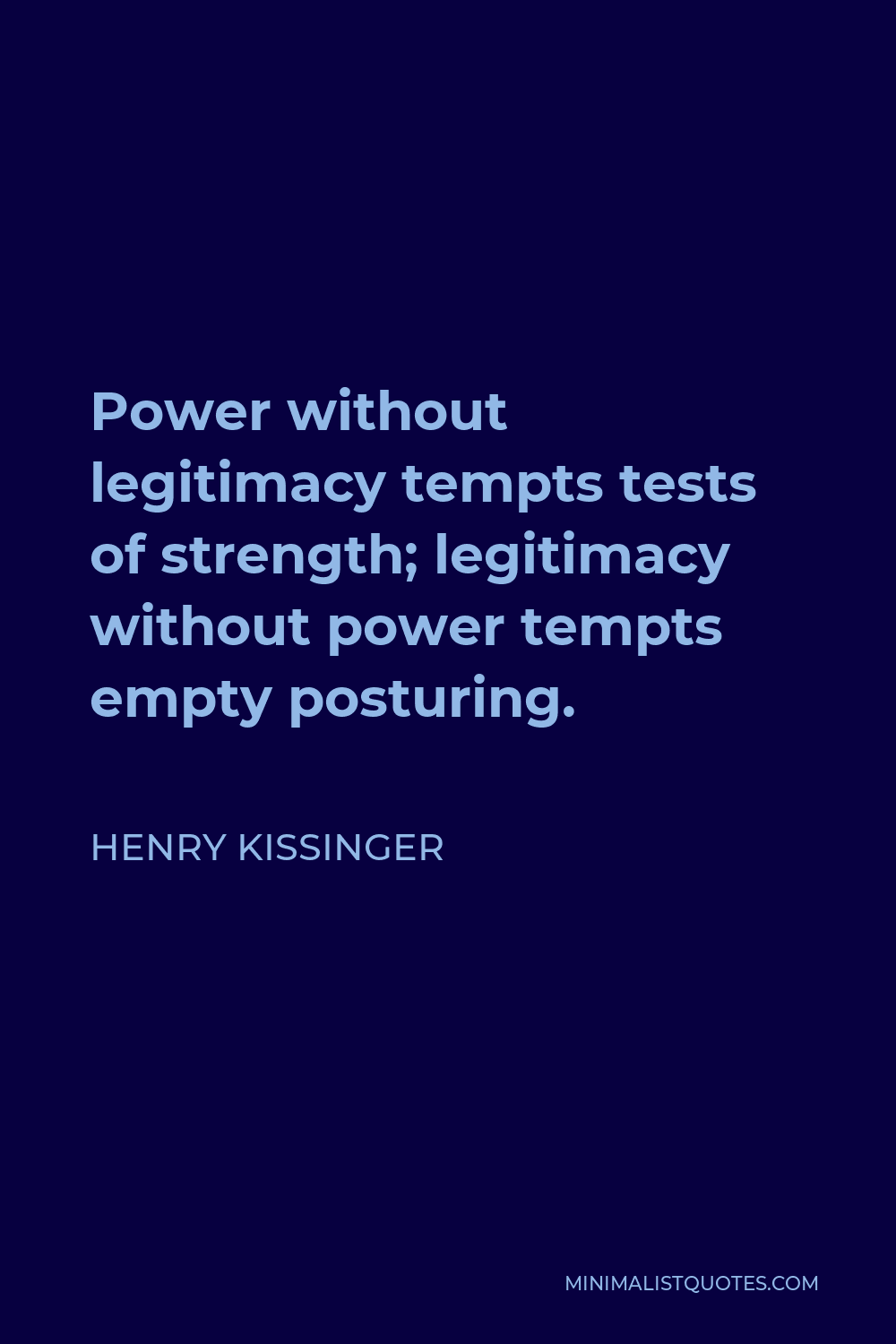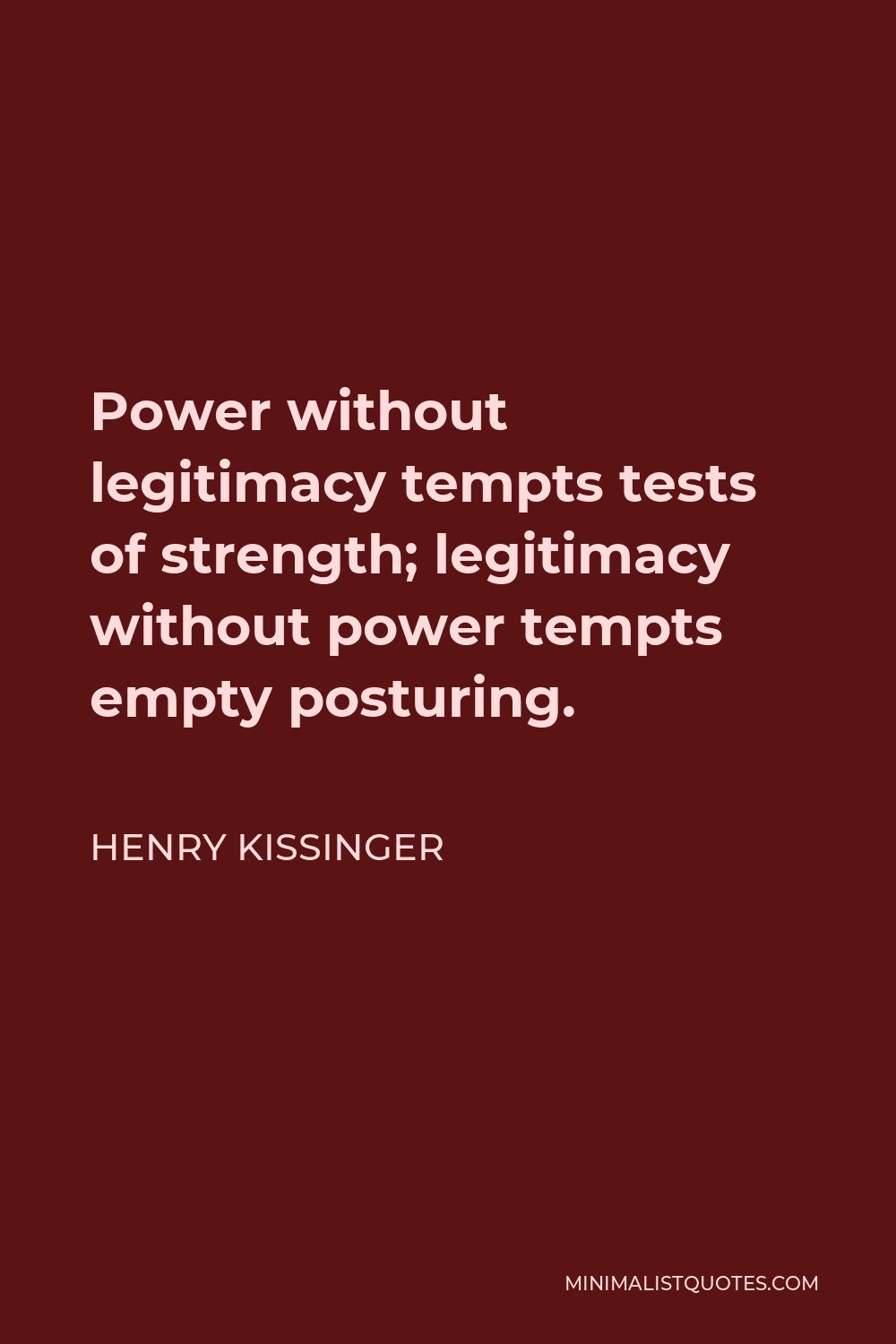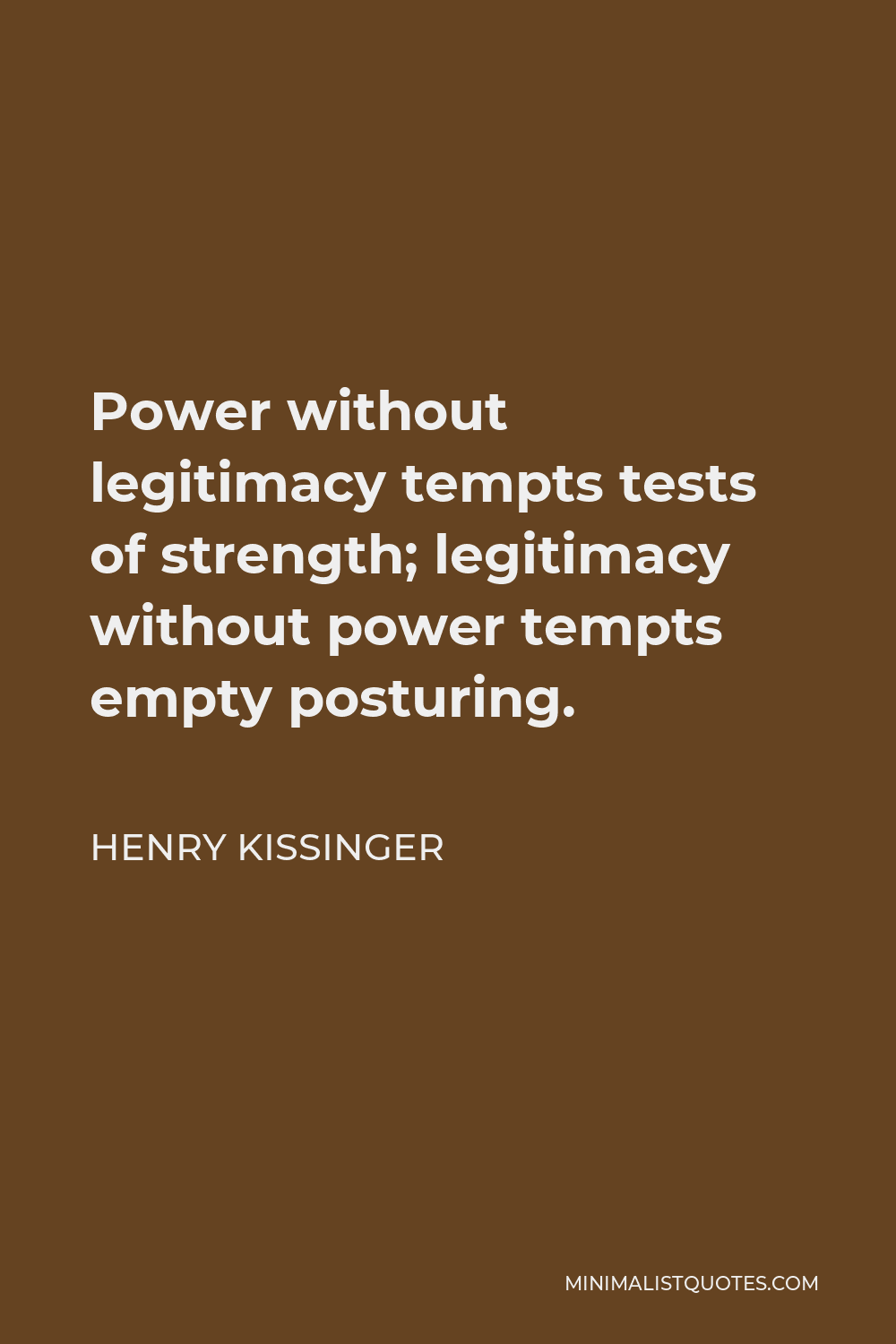The Art of War articulates a doctrine less of territorial conquest than of psychological dominance; it was the way the North Vietnamese fought America.
HENRY KISSINGERPower without legitimacy tempts tests of strength; legitimacy without power tempts empty posturing.
More Henry Kissinger Quotes
-





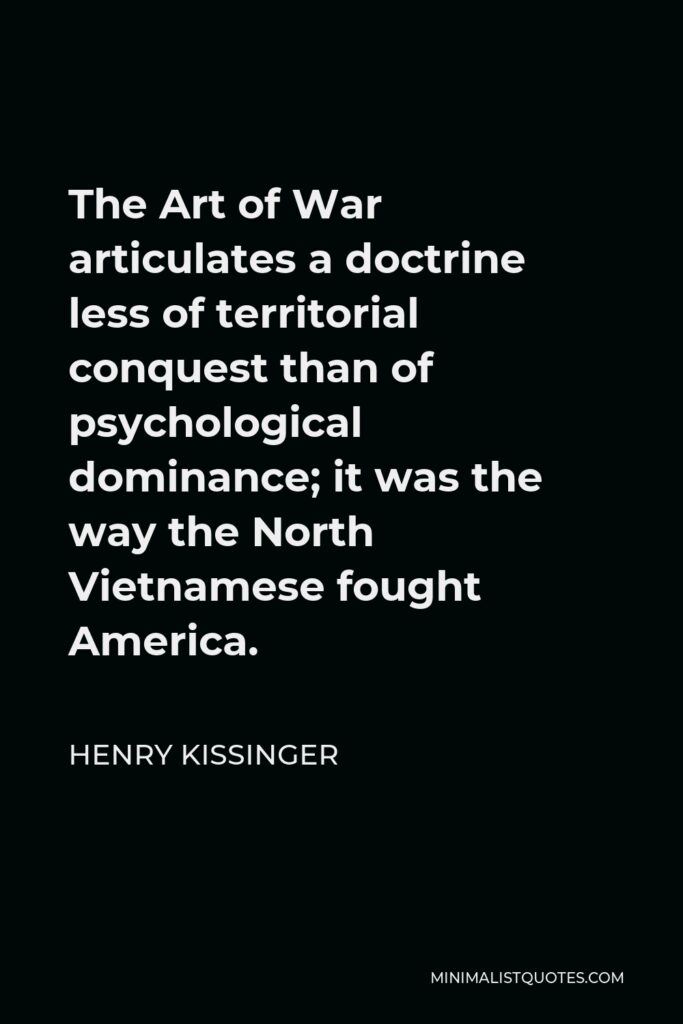

-





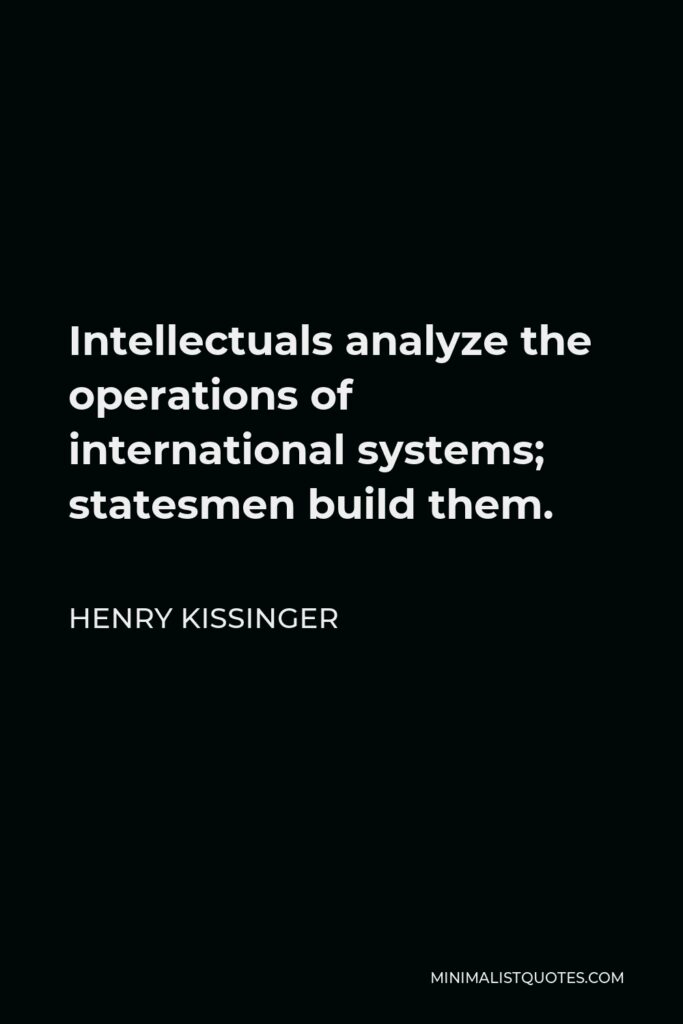

Intellectuals analyze the operations of international systems; statesmen build them.
HENRY KISSINGER -





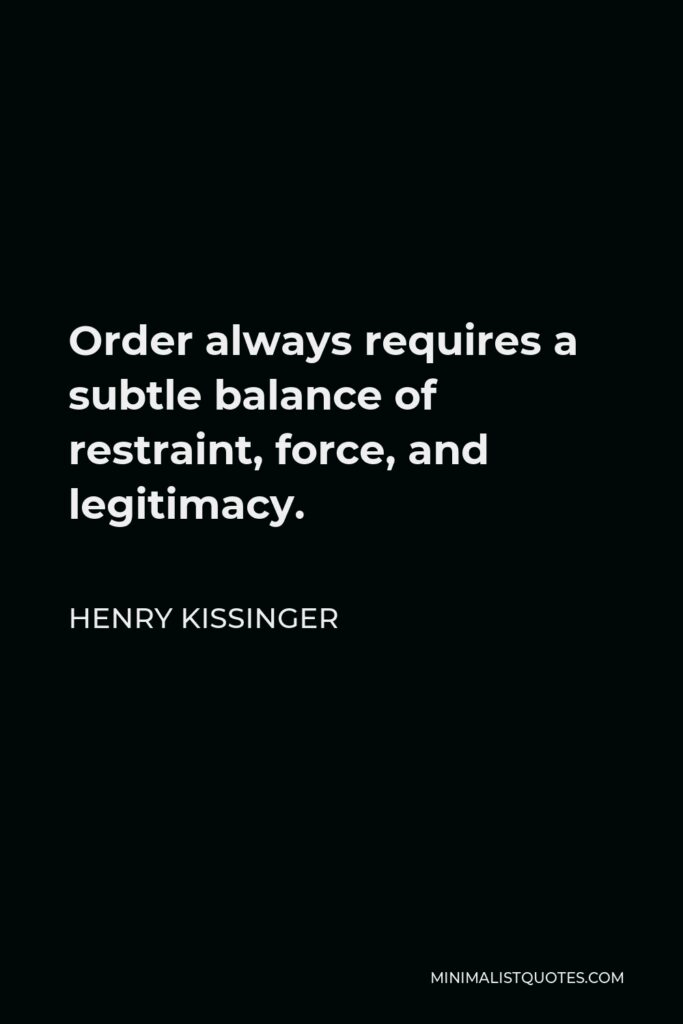

Order always requires a subtle balance of restraint, force, and legitimacy.
HENRY KISSINGER -





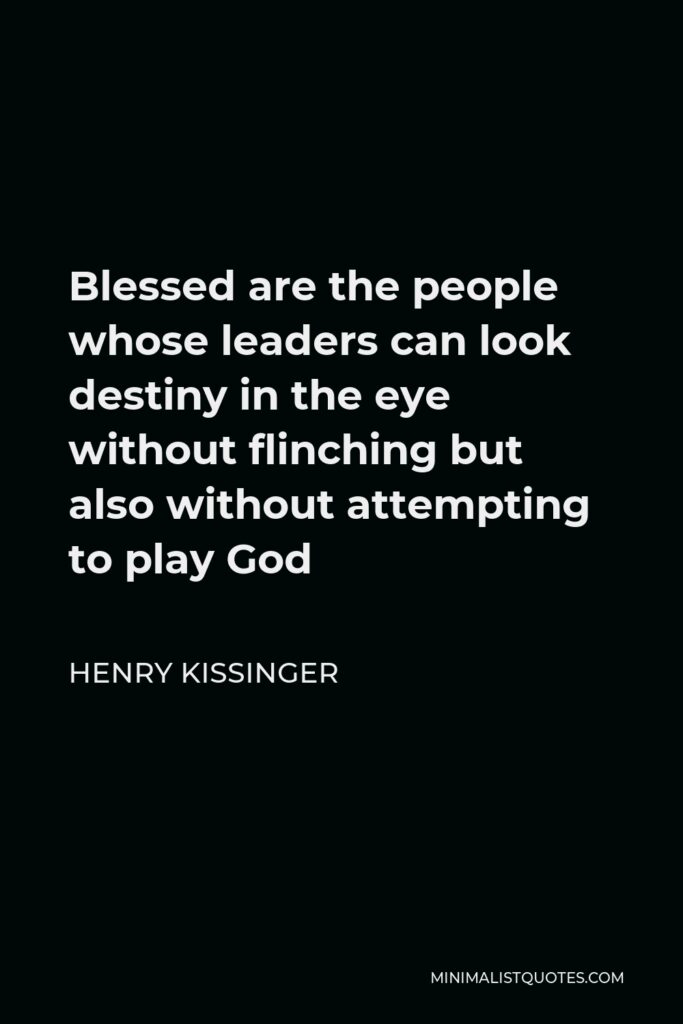

Blessed are the people whose leaders can look destiny in the eye without flinching but also without attempting to play God
HENRY KISSINGER -







For nations, history plays the role that character confers on human beings.
HENRY KISSINGER -





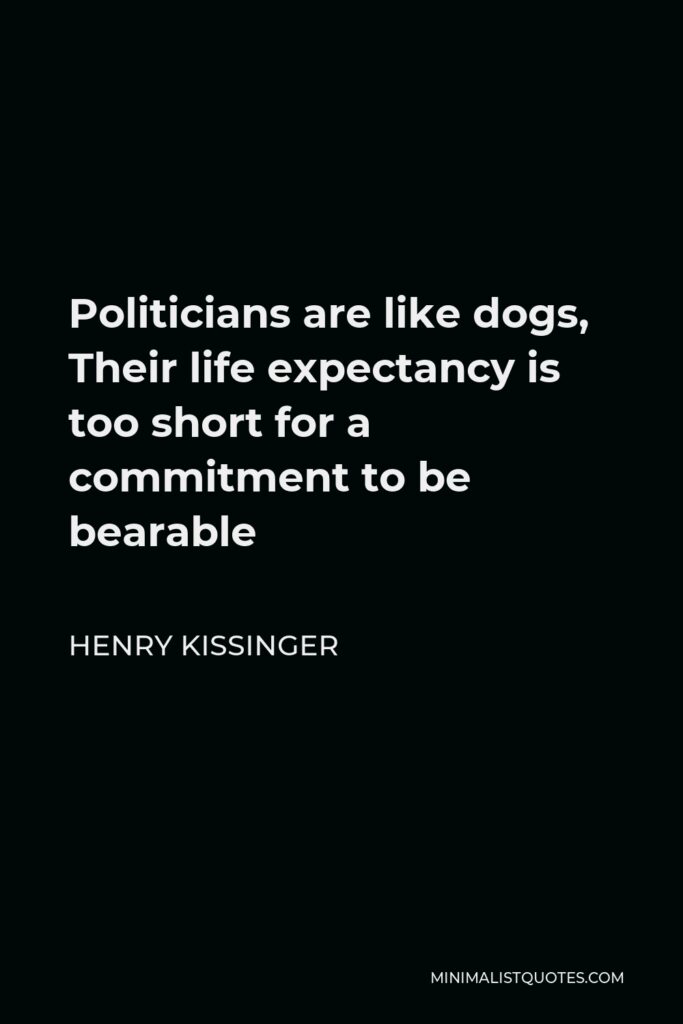

Politicians are like dogs, Their life expectancy is too short for a commitment to be bearable
HENRY KISSINGER -





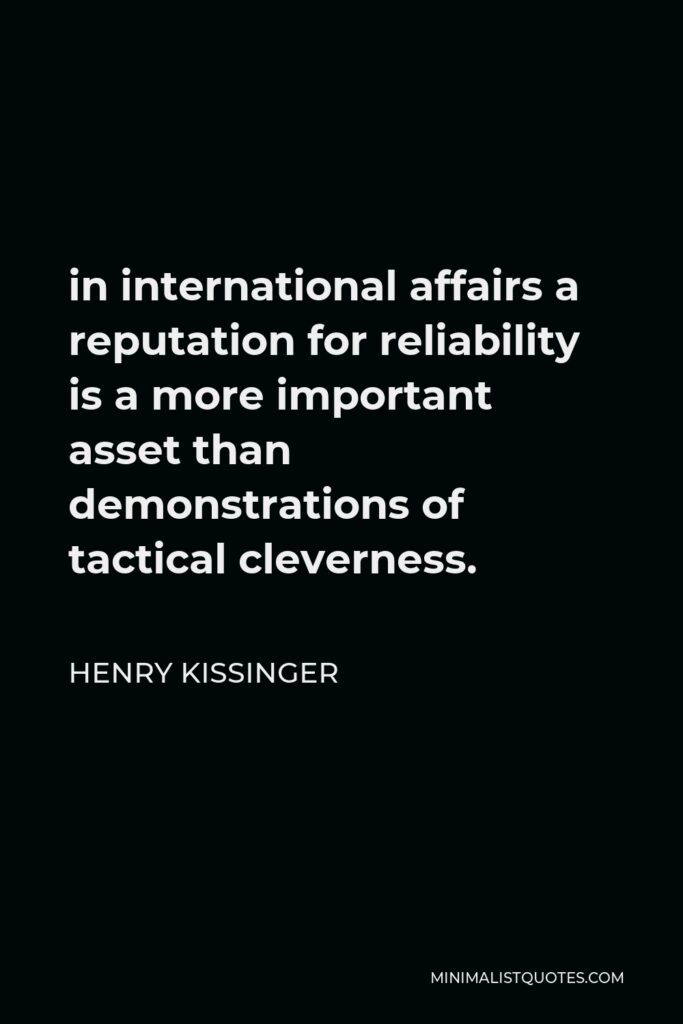

in international affairs a reputation for reliability is a more important asset than demonstrations of tactical cleverness.
HENRY KISSINGER -





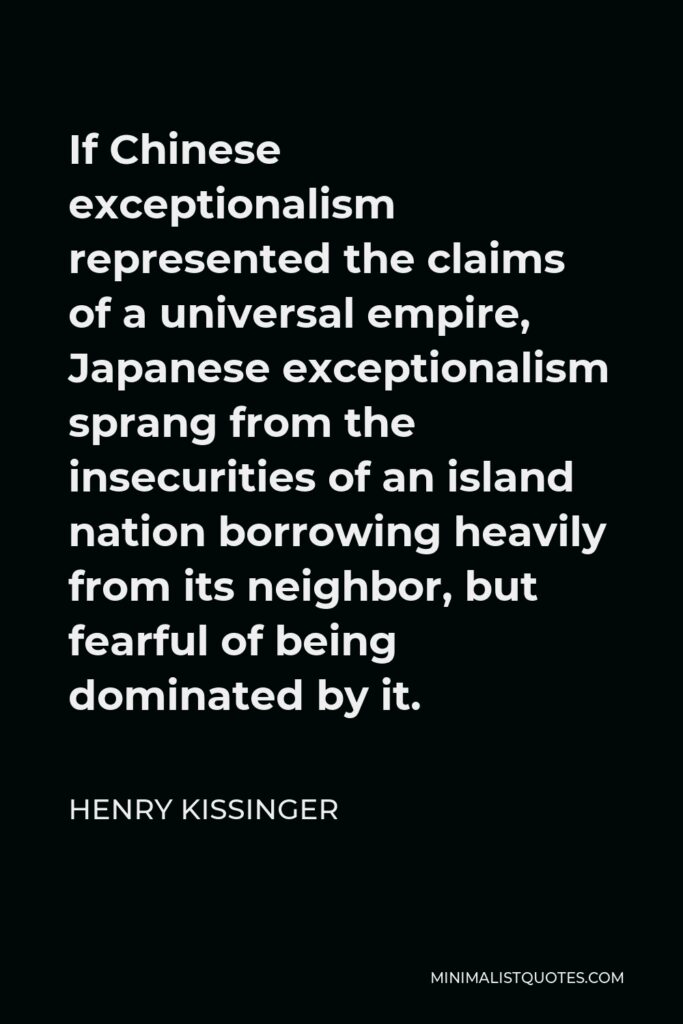

If Chinese exceptionalism represented the claims of a universal empire, Japanese exceptionalism sprang from the insecurities of an island nation borrowing heavily from its neighbor, but fearful of being dominated by it.
HENRY KISSINGER -





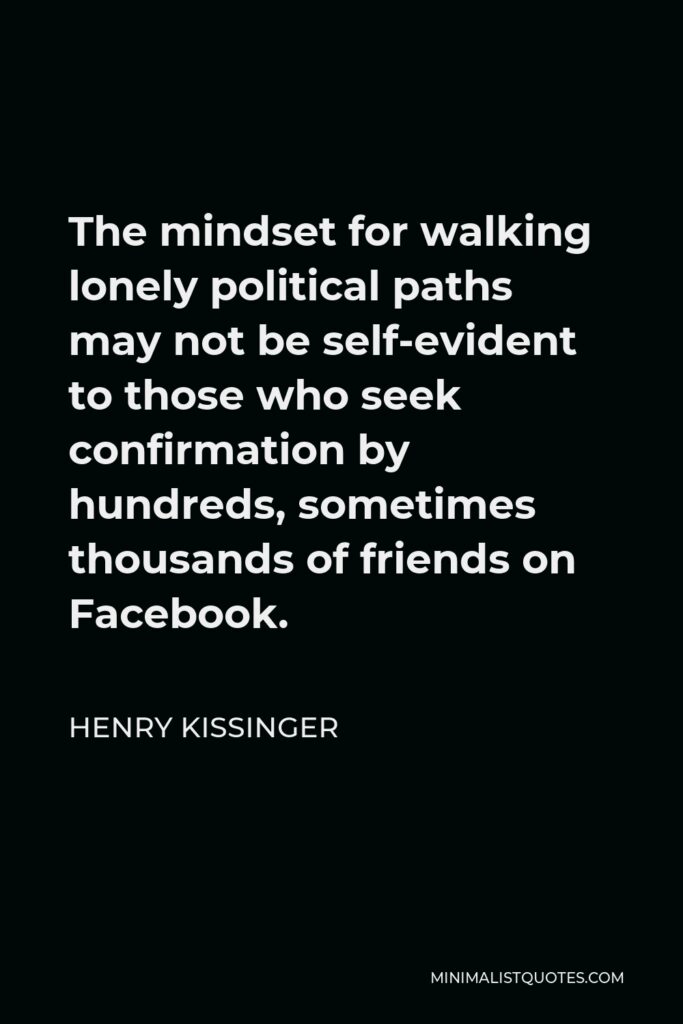

The mindset for walking lonely political paths may not be self-evident to those who seek confirmation by hundreds, sometimes thousands of friends on Facebook.
HENRY KISSINGER -





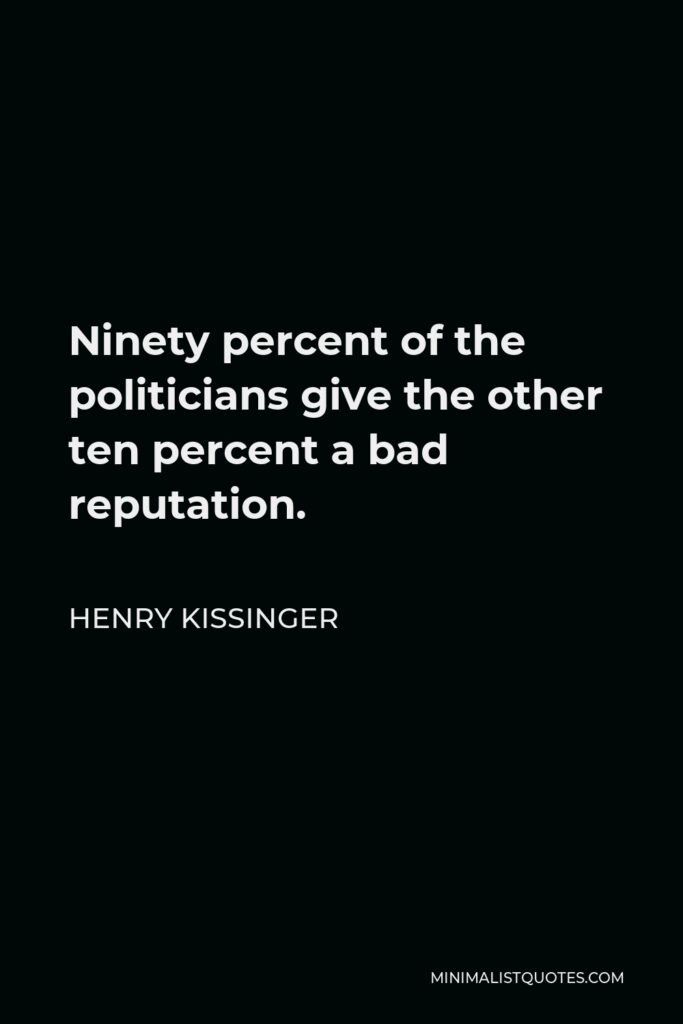

Ninety percent of the politicians give the other ten percent a bad reputation.
HENRY KISSINGER -





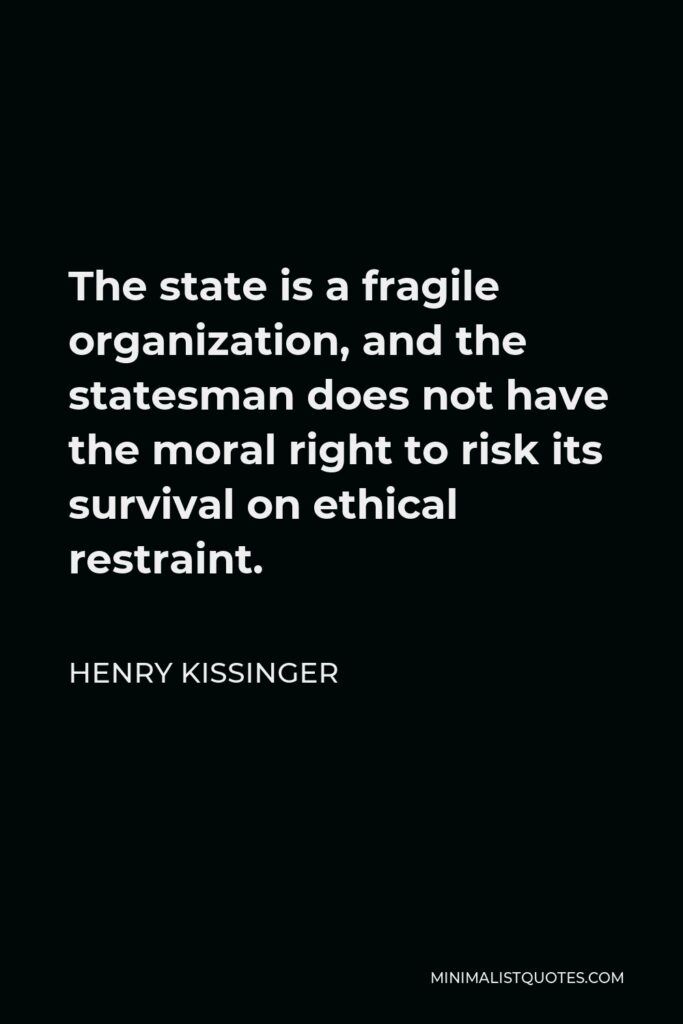

The state is a fragile organization, and the statesman does not have the moral right to risk its survival on ethical restraint.
HENRY KISSINGER -





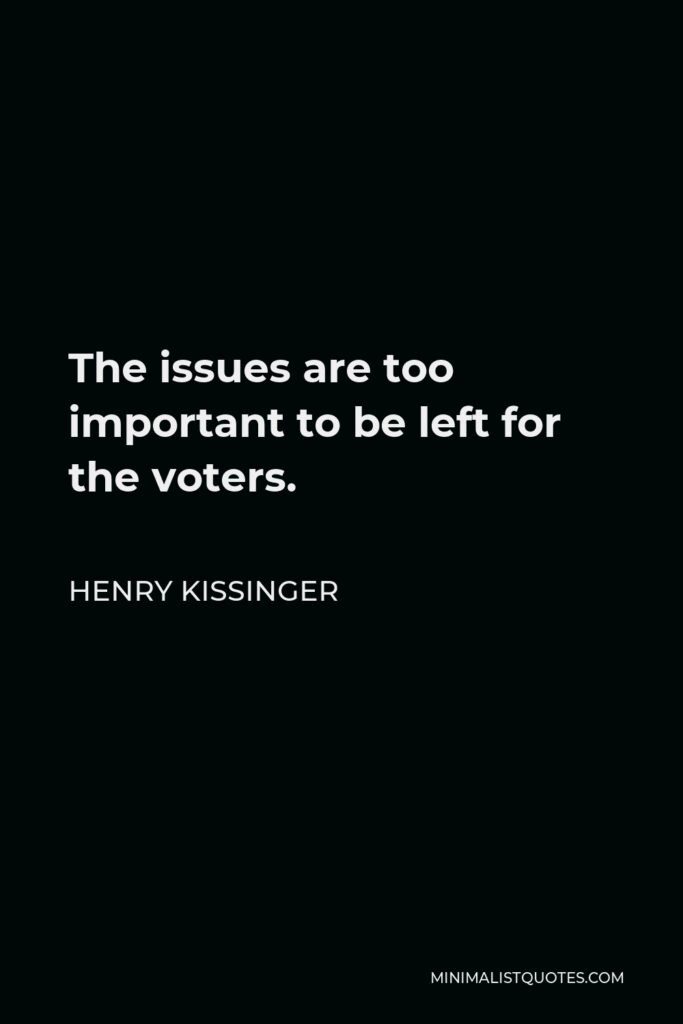

The issues are too important to be left for the voters.
HENRY KISSINGER -





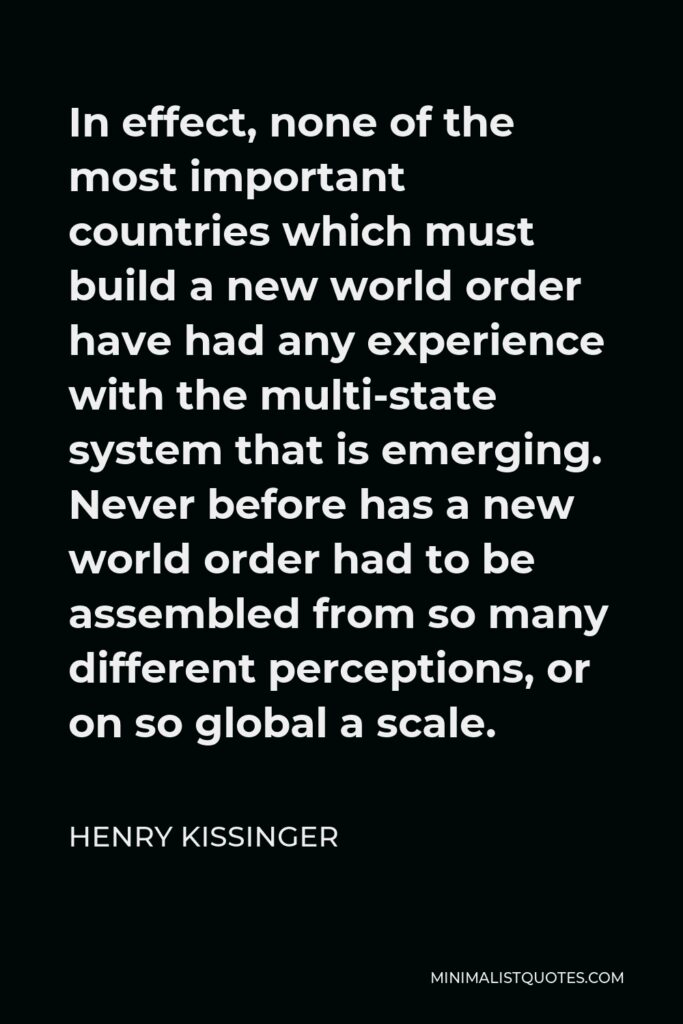

In effect, none of the most important countries which must build a new world order have had any experience with the multi-state system that is emerging. Never before has a new world order had to be assembled from so many different perceptions, or on so global a scale.
HENRY KISSINGER -







Behind the slogans lay an intellectual vacuum.
HENRY KISSINGER -







History is the memory of States.
HENRY KISSINGER -





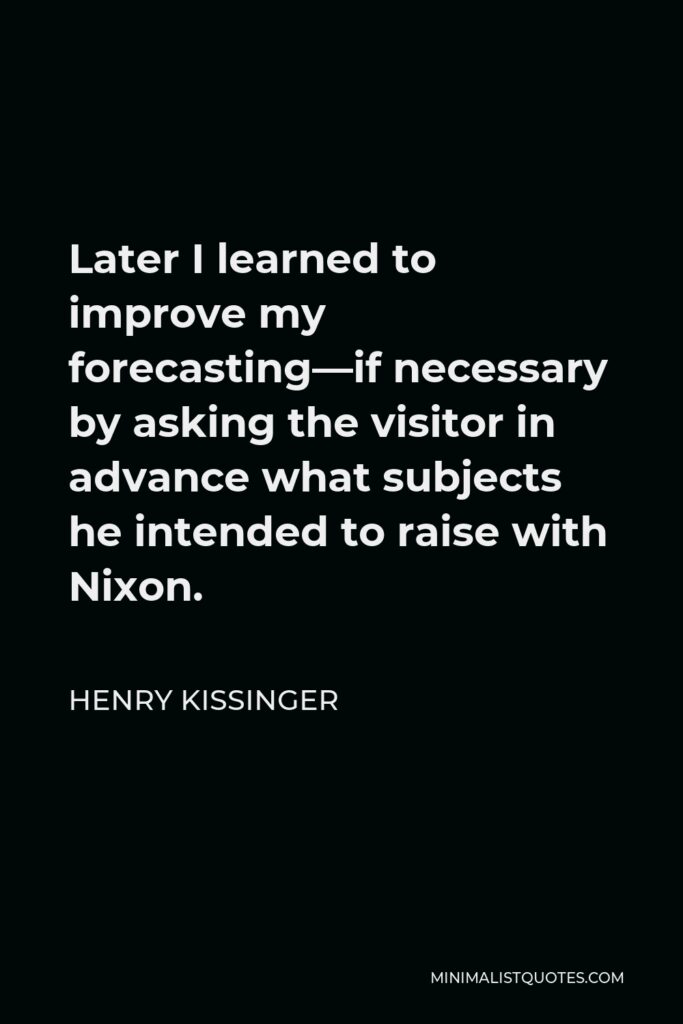

Later I learned to improve my forecasting—if necessary by asking the visitor in advance what subjects he intended to raise with Nixon.
HENRY KISSINGER
